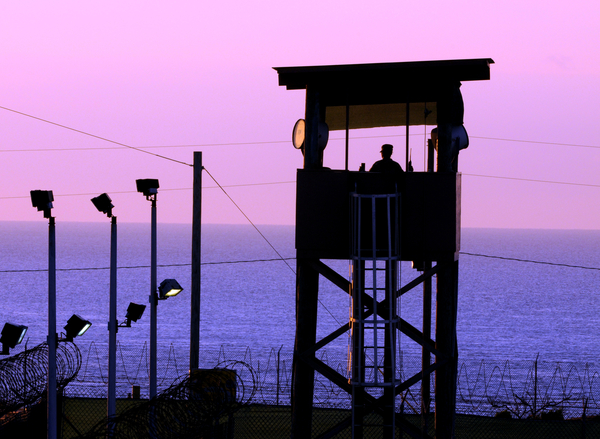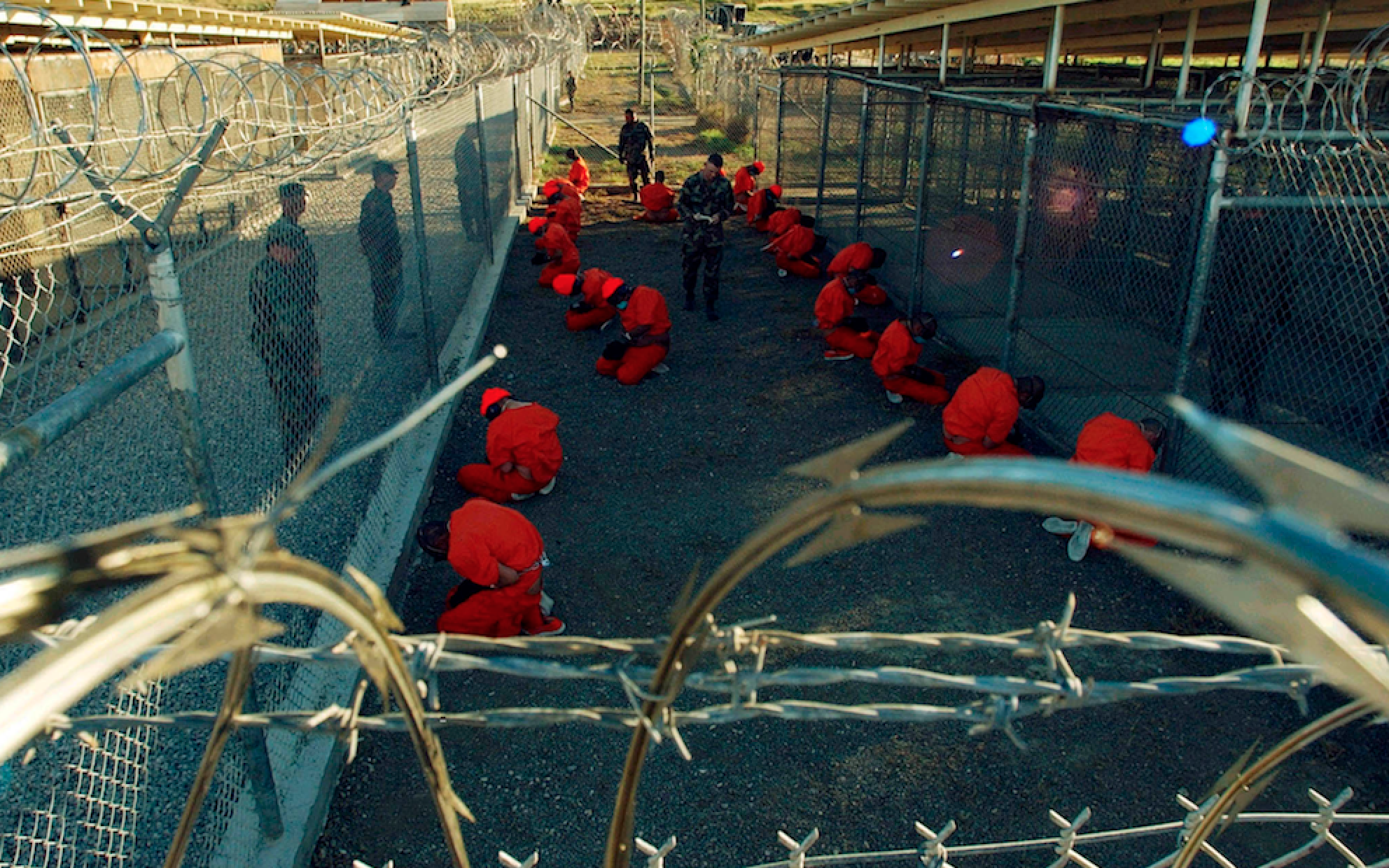
This week I traveled to Guantanamo naval station, on the southeastern tip of Cuba, to observe the military commission proceedings. So far, the thing that surprises me most about Guantanamo is how beautiful it is.
On the beaches here, stones crackle like fireworks as the waves recede over them. Green hills are dotted with yellow flowers. The breeze is the kind that gently stirs your appetite, or tempts you to nap in the shade.
But there is an ugliness here. This was a “battle lab” for torture. It remains a place where 107 individuals are held indefinitely, nearly all without charge. And there is a perversity to the fact that in my first full day here, I swam in the water and felt the sun on my face. In as many as 14 years here, these individuals have never experienced this.
Last night there was a Christmas parade for the military personnel and their families stationed here. It made me think of men like Toffiq al-Bihani, held not very far from us, but very far from his family, for 13 years. Top national security agencies cleared him for transfer about five years ago, in 2010.
Stranger still is being here at Guantanamo as the U.S. reels from attacks in San Bernardino and Paris – attacks that pundits are using to whip the country into a fever. The demagogues seize on a menace. That menace is The Muslim, mysterious and unknowable–yet unvaryingly violent in his inclinations. He is everywhere, but hidden. He is terrifying, but could merely be your neighbor.
That is clearly the subtext of the conventional wisdom on extremism which says that American Muslims must be watched and surveilled indiscriminately. There is also another conventional wisdom – represented most notably in President Obama’s speech Sunday night—that decries the demonization of all Muslims as extremists, but still argues all Muslims are responsible for ending extremism. Collective punishment and collective responsibility almost seem like two sides of the same coin.
Both of these ideas feed a larger beast of fear, bordering on mass hysteria, about Muslims. Many politicians will use fear to justify systemic human rights violations—not just against Muslims, but anyone else who “could” be a threat (even in the absence of specific information). They may even use it, some time in the not-so-distant future, as a way to attempt to re-introduce internment to the United States.

And politicians will use recent attacks that have nothing to do with the men detained at Guantanamo—not their organization, their ideology, or of course their participation—as a reason to keep them here. They will use the genuine anxiety people have for their security as an excuse to keep this detention site open for the foreseeable future.
So, this will probably not be my last visit to Guantanamo. This place may even become a permanent offshore prison for this endless global war. I will revisit its beauty and its ugliness– again and again.
